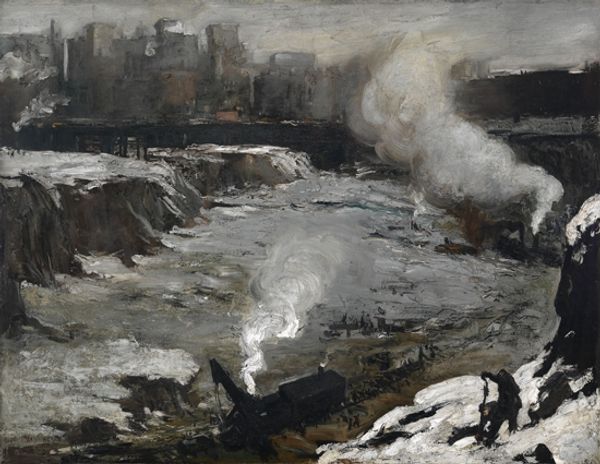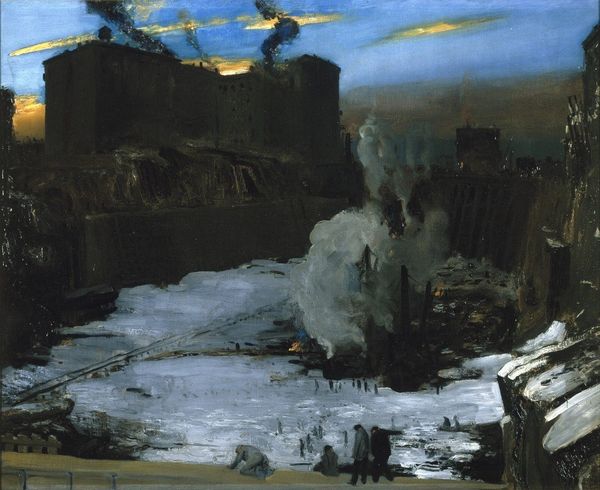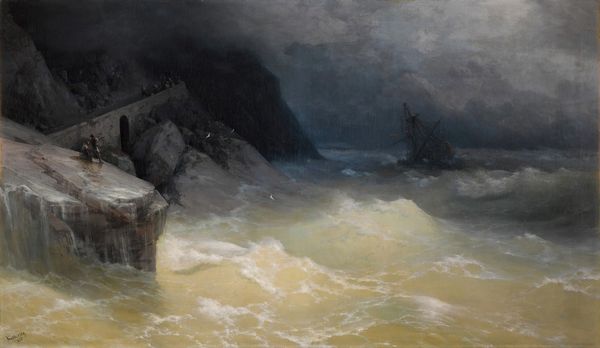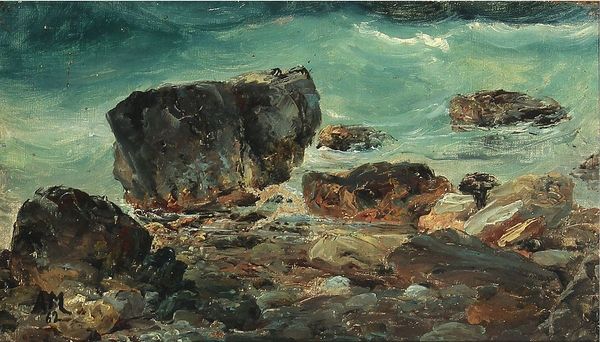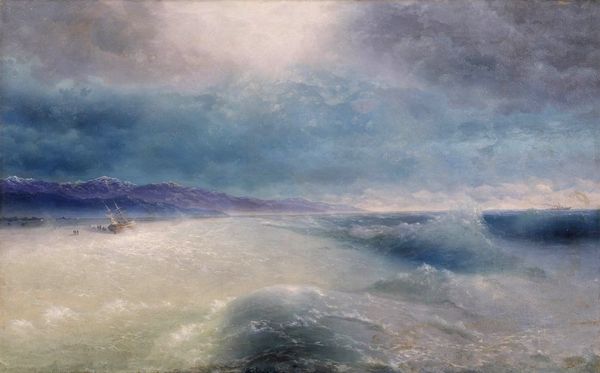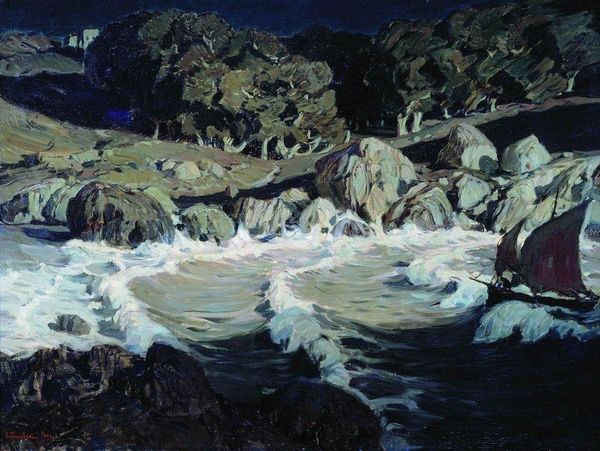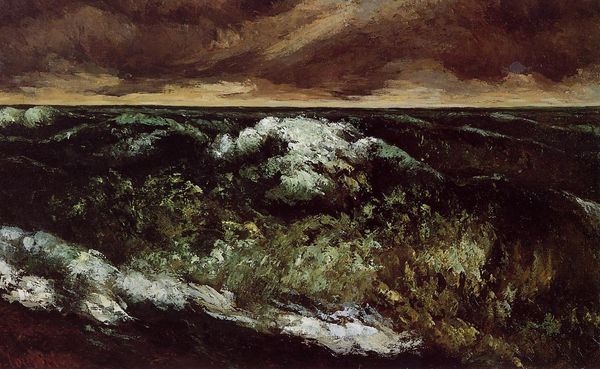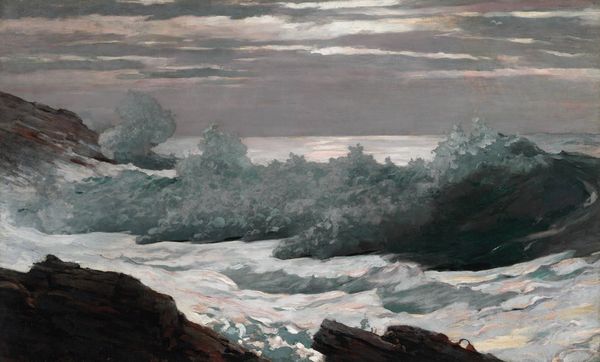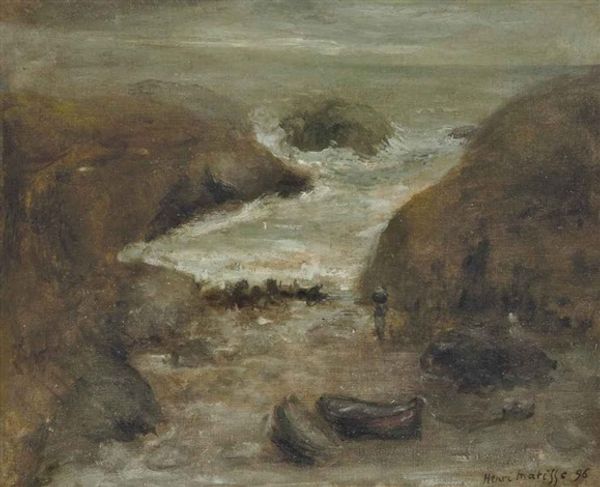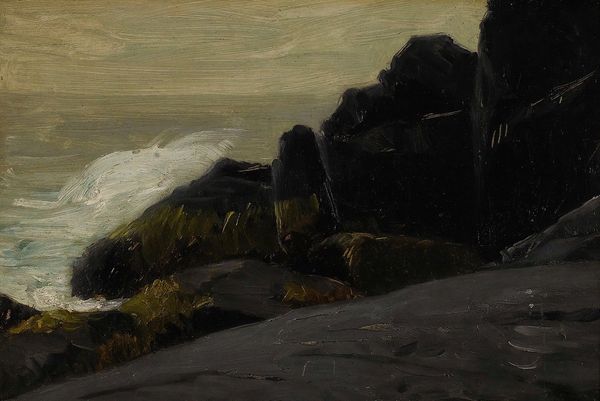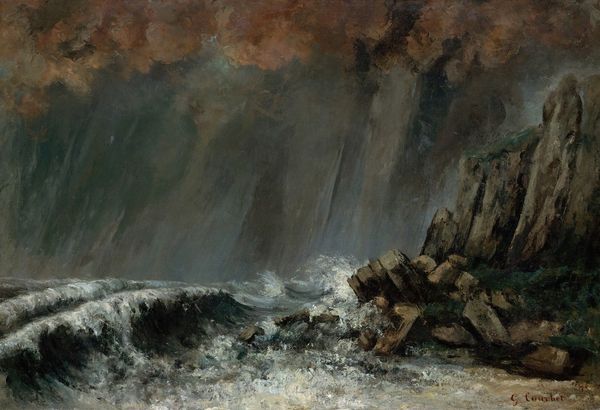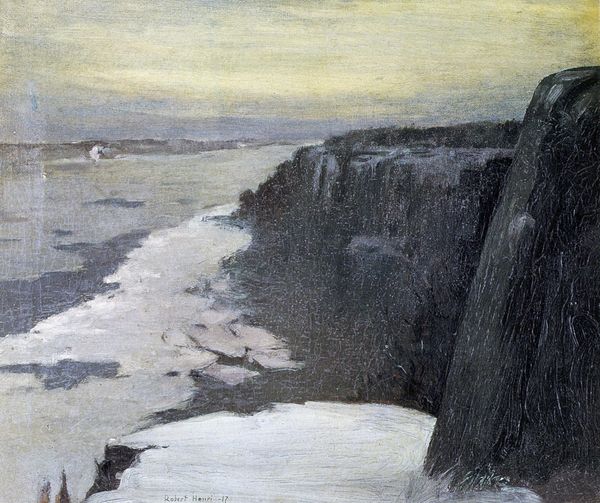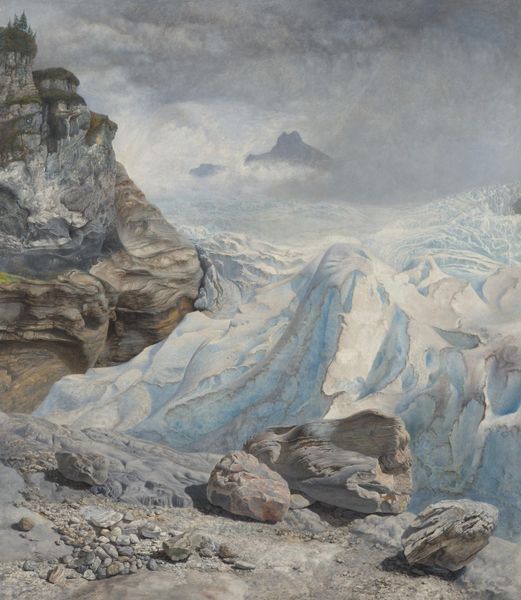
oil-paint
#
oil-paint
#
landscape
#
oil painting
#
expressionism
#
expressionist
Copyright: Public Domain: Artvee
Curator: Let's delve into George Bellows' "North River" from 1908, rendered in oil paint. Editor: Immediately, I’m struck by the chromatic intensity; the blues are almost aggressively dark. And there’s a tangible sense of raw, industrial energy battling the stillness of winter. Curator: Absolutely. Consider the context: Bellows painted this during a time of immense social upheaval in New York. The North River, or Hudson River as we know it now, wasn't just a scenic waterway. It was a locus of labor, immigration, and industrial expansion, a point Bellows keenly addressed throughout his career. It becomes a meditation on urban modernity. Editor: But look how Bellows harnesses that energy! Notice the deliberate brushstrokes: short, thick strokes capturing the choppy surface of the water and the smoky haze of the industrial activity. There's a masterful handling of light; it reflects unevenly off the icy patches. The entire composition funnels your gaze towards the distant shore. Curator: The painting reflects the lived experiences of those navigating poverty and societal precarity during the period. For example, Bellows would’ve been familiar with Jacob Riis's reformist photography. This piece becomes his own intervention on representing the urban underbelly. Editor: A perspective certainly echoed in the use of diagonals, drawing our focus to the vertical chimneys of the boats and, conversely, horizontal piers—the lines pull the composition apart and contribute to the work’s internal dynamism. Curator: Precisely, Bellows' urban scenes can serve as historical texts reflecting on gender, race, and social stratification during the rise of American industrial power. How can we decolonize the Hudson? Editor: Leaving politics aside for a moment, that impasto really gives a sense of physicality; it feels like you could almost reach out and touch the frozen, muddy banks. Curator: Through its composition, Bellows is interrogating the conditions that dispossess communities living in those very riverbanks and docks. It begs us to think: how complicit is the naturalistic allure with real material harm? Editor: His mastery of form becomes undeniably compelling once we acknowledge how it allows Bellows to present such an evocative and sensorial experience of place. Curator: Thinking through those terms lets me re-evaluate my appreciation for his capacity to bring laboring bodies to the surface through form and content, asking questions about historical erasures of these communities of the Hudson River. Editor: I appreciate the raw affect articulated across that scene, regardless of the figures or objects on view; the river truly comes alive through pure compositional choices and the visceral brushstrokes themselves.
Comments
No comments
Be the first to comment and join the conversation on the ultimate creative platform.
